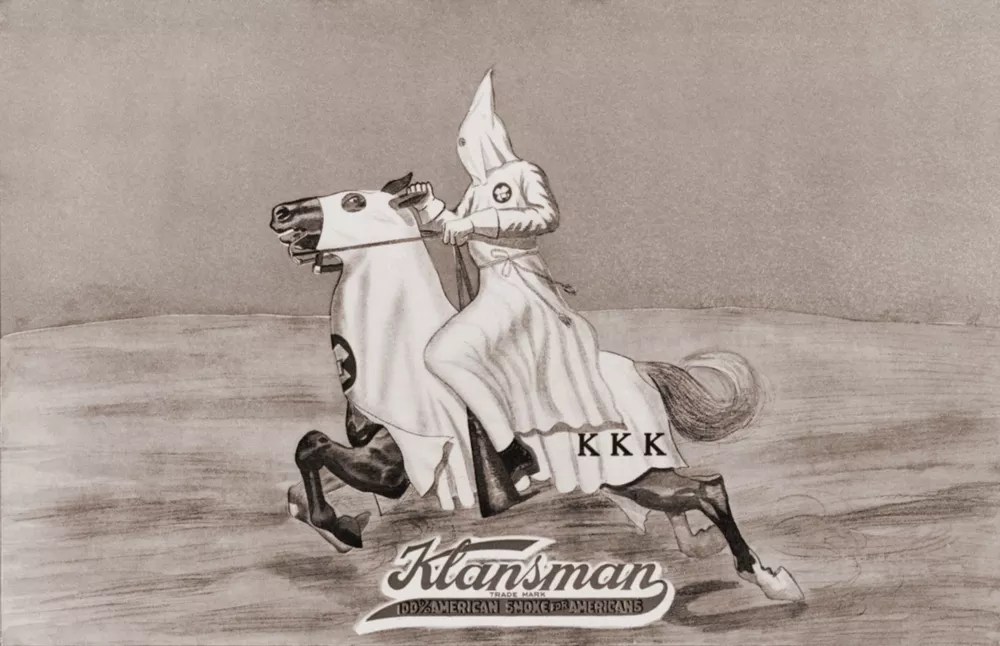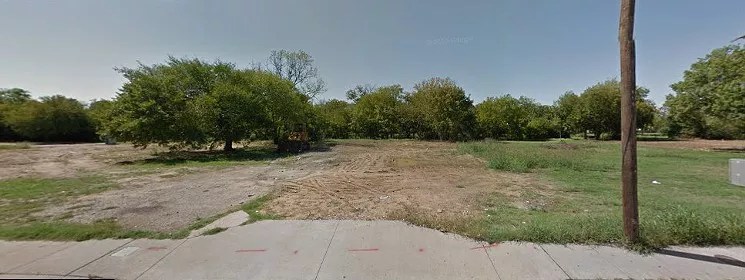
Shutterstock Everett Historical

Audio By Carbonatix
Like Dallas, Houston is in Austin right now trying to get the Legislature to sign off on a much needed fix for its police and fire pension funds. Houston cops, firefighters and the mayor are not in total agreement on what they want, but at least they have somebody in charge: the mayor of Houston.
We’re down there fighting each other like summer brats without a camp counselor. I couldn’t even tell you who speaks for the city.
Not the mayor. He’s not in charge. Well, let me see. He wasn’t at first. Then he was. But he backed out. Last November Mayor Mike Rawlings told an Austin review board that if the Dallas Police and Fire Pension Fund didn’t fix itself, the fund might bankrupt the city, so at that point, far from being in charge, he was the hapless victim of his own pension fund.
Not to fear. In December, Mayor Rawlings sued his own pension fund, a move viewed by many as an effort to take personal control. But, yes to fear, last week Rawlings dropped the lawsuit rather than litigate the question of whether he had the right to sue his own pension fund.
Houston has what is called a “strong mayor” system. There the mayor has been in control of pension negotiations from the beginning, with mainly good but not perfect results. Houston Mayor Sylvester Turner has been able to win a solid buy-in for his proposed pension fund fix from his police union but not so much from his firefighters.
At the very least, the Houston proposal being debated now in the Legislature is the Houston mayor’s proposal. Dallas wasn’t able to cobble together anything close to a consensus proposal, so the proposal the Legislature is looking at for Dallas was authored by a legislator from East Texas.
Is that bad for Dallas or good? Who knows? It just means Dallas can’t take care of its own business, so now we must depend on the kindness of legislators. Texas legislators. And no one can know or predict how that will end.
For all we know, we’ll wind up having to pay $1,500 in advance in order to get a fire truck. The marketplace, don’t you know. How does a blue city wind up putting its fate in the hands of the fire-engine-red Texas Legislature? By not being able to take care of itself.
And I guess it sounds like I’m putting the blame for that on Rawlings, like he’s some dumb guy who doesn’t know how to run things. Well, I don’t know about that. In 1992, when Rawlings was CEO of Tracy-Locke, it was the nation’s 23rd largest ad agency with annual billings of $400 million. Rawlings oversaw Tracy Locke’s merger that year with DDB Needham, the nation’s fifth largest agency with $5 billion worldwide. I can’t see how that could have been simple.
Later, when he was CEO of Pizza Hut, Rawlings sold off restaurants, redesigned the ones he kept, redesigned the product and introduced a new culture of personnel management. So what about that? Selling restaurants, designing restaurants, changing pizza recipes and motivating employees – that sounds like a lot of stuff.
What are the chances anyway that Dallas wound up down in Austin looking like a boxful of bad cats just because the mayor doesn’t know what he’s doing?
What are the chances anyway that Dallas wound up down in Austin looking like a boxful of bad cats just because the mayor doesn’t know what he’s doing? I don’t think that’s a very likely or probable explanation. In fact, we need to look at ourselves and at the setup at City Hall a bit more introspectively and critically before we make this an entirely personal issue.
City Council members Scott Griggs and Philip Kingston, who are members of the Dallas Police and Fire Pension Board, have pointed out repeatedly that the city always had the right – they would call it a derelict duty – to audit the fund over the years. That one term of art, audit, by the way, is now the most feared word at City Hall.
I told you last week that the Office of the General Counsel at the U.S. Department of Housing and Urban Development (HUD) had a team of suits crawling all over City Hall looking for documentation for $29.9 million in federal expenditures that Dallas apparently doesn’t have receipts for. That’s been going on since last October, when I told you the city manager’s staff was trying very unsuccessfully to shoot down a report about it by the independent Dallas city auditor.
Two big things to pay attention to there. One, this kind of revelation should not have to come from the independent auditor. If the city manager’s staff had been making its own even minimal effort to keep up with business properly, the staff would have been doing or commissioning its own annual audits all along and would have spotted these problems before they metastasized.
Two, they metastasized. The city’s housing money problems are potentially bigger than $29.9 million. That number was just the point at which the independent auditor stopped counting, because he figured it was a good enough sample to show that the city’s entire HUD-sponsored housing program is screwed up as a junk pile. You want to know what the total could be over a period of years? Start thinking in B’s.
The only thing saving Dallas right now is that HUD itself is even more screwed up and a much bigger junk pile. We just have to hope the new HUD secretary, Ben Carson, doesn’t surprise everybody and decide to reach out and hire people from the planet Earth to work for him.
So how do these things happen? How does the city manager system, with all its vaunted emphasis on professionalism, fail to count the damned cash drawer on Friday nights? And I know we have a new guy. Robert Wilonsky at The Dallas Morning News has been going on about how the new city manager, T.C. Broadnax, is just too wonderful for words.
I’m sure he is. But by trying to analyze and understand a massive institutional failure like the housing money scandal strictly in issues of leadership – old guy messed it up, maybe new guy will fix it – we make the same mistake as when we blame the pension mess on the mayor.
This stuff is baked in. Dysfunction is baked in. We have a fundamentally dysfunctional system of government, and we need to go back, understand our history and realize why City Hall is set up the way it is.

This is one of the housing projects Dallas was supposed to build using HUD money.
dallascityhall.com
Dallas was just like every other Southern city to start. From the late 19th century through the 1920s, the city was run by the Ku Klux Klan. In 1922 the Klan took over county government, and the next year it took over Dallas City Hall.
From the ’20s forward, the city’s business leadership struggled to take control away from the Klan, with varying degrees of success. The Dallas Morning News still brags about the paper’s role in fighting the Klan in the ’20s, but the official white peoples’ history of Dallas always fails to mention that very Klan-like waves of bombings, supported by the same white churches that had supported the Klan, persisted in plaguing black homeowners through the 1950s.
The arrangement at City Hall today is a legacy of the deal that the old business elite, the money, struck with white middle-class voters and churchgoers over a period of years in the middle of the last century. The deal was this: The money would work its will through the private Dallas Citizens Council. City Council posts and the mayoralty would all be elected at large according to a slate put forward by the Citizens Council.
Segregation would be maintained, as would law and order in the white half of town. Black citizens would be disenfranchised. A collaborationist black leadership made up entirely of clergy would be paid in cash to honor this deal.
The day-to-day operation of city government would be placed under a so-called professional city manager who was obligated by the City Charter not to talk to elected officials about daily operations. In effect, that meant that he took his daily marching orders from the Citizens Council.
And guess what? All of that sort of worked until the 1980s, when the local economy blew up, all the local banks went down the tubes and a lot of the old Citizens Council money either went away or got burned up in the blast.

This is what Dallas actually built using HUD money.
Jim Schutze
What we have left is a different, much more ruthlessly survivalist culture among those left in the old money class still. Rather than thinking about what they can do for the city, a lot of the old money spends its time thinking of ways to gouge more money out of City Hall in new real estate tax breaks, jealous that some of the new national out-of-towners will get more gravy than they will.
And there is no way to control it. Think about it. The old organizational chart had the Citizens Council at the top with a direct line down to the city manager, with a notation, “Real,” and a line over on the side to the mayor and City Council with a notation, “Joke.”
The Citizens Council is still very much with us and still very pushy in running the city manager, but it no longer takes a parental responsibility for the outcomes. The mayor is one vote on the council. The council can ask the city manager for things, but it can’t tell him to do things, unless all of a sudden there are eight votes to fire him, which never happens. Most of them think they work for him anyway.
The buck stops nowhere. It’s nobody’s job to do audits. It doesn’t profit anybody to do audits. The new city manager may be a great guy, but the only thing an audit can tell him is that he can’t afford to do what some son of a bitch is telling him to do.
Our problems are not personal. It isn’t a question of leadership. That’s a canard. Our problems are the product of history and structure. We’re messed up down in Austin right now because we’re always messed up at home.